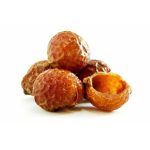Around the world, tea could be considered the second most popular beverage after water with thirty-five countries making this product. Among them, eighty percent of tea has been grown in the “top” five countries, in which China is considered the new leader, followed by India, Kenya, Sri Lanka, Turkey, and Vietnam. It could be said that tea plants require a lot of care for better growth and development. Although today, machines have gradually been used to pick up tea leaves in many plantations, hand-picking just like China in almost two thousand years ago has been still practiced for the vast majority of high-grade and high-quality tea-tree plantations.

Tea-tree plantations in Lam Dong Province, the Central Highland, Vietnam
The meticulousness and complexity in each stage during the cultivation and processing periods to obtain the final tea products indicate the great concern and aesthetics people have for this drink. Among many factors contributing to the quality of tea products, the tea-tree plantation soil greatly affects the growth and development of tea plants. Soil is known as a complex matrix containing various inorganic and organic components, especially the contents of elements (metals, metalloids, and non-metals). These elements can be divided into three main groups, namely the macronutrients (Na, K, Ca, Mg), the micronutrients (Fe, Cu, Zn, Mn, . ..), and non-essential elements (Al, Pb, Cd, Hg, …). Tea plants can absorb these elements from the soil during the growth and development stage, then bioaccumulate in each part, especially the leaves. The elements that exist in the tea leaves, then the tea products can be released into the tea liquors in the brewing period, finally enter the human body. The vast majority of tea drinkers prepare the tea liquors by adding hot water to the tea leaves, then steeping the tea for a certain amount of time. However, in some countries such as India, China and Egypt, people have another way of brewing the tea, which is to boil the tea with water, similar to the decoction in Oriental medicine. The releasing of elements into the tea liquors depends on various factors such as the quantity of tea used and the brewing conditions, typically the brewing temperature, brewing time, tea varieties, and so on.
In Vietnam, the studies on elements in tea in general and Vietnamese tea products in specific are still limited. Some publications only stop at determining and evaluating a few elements in tea products, but did not simultaneously quantify and assess various elements. It is more practical to determine the element contents right in the tea liquors, which people directly put into their bodies. After that, it is possible to come up to certain conclusions related to the factors affecting the concentration of elements in tea leaves and their potential to release into the tea liquors under different brewing conditions.
During the research activities, the principal investigator, Mr. Nguyen Cong Hau has conducted several studies on the assessment of total content of elements in tea-tree plantation soils and tea leaves. This was the master’s thesis of Mr. Cong Hau and has won excellent marks. Currently, the research results have been being prepared for article manuscripts and submitted for ISI publication. The research in this project will continue the author’s research to better understand the extraction of these elements from tea leaves into tea liquors; thereby providing a comprehensive set of data on the metabolism and accumulation of elements from the soil into the tea and finally into the tea cup. The results of this study will evaluate the contents of essential and non-essential elements, as well as the releasing ability of these elements (especially non-essential elements) into the tea liquors under different brewing conditions for several specific Vietnamese tea products. The data obtained from this study will complement the data set on evaluating the composition of antioxidant compounds in tea leaves and in tea liquors at different brewing temperature and brewing times, contributing to scientific database for Vietnamese tea.








